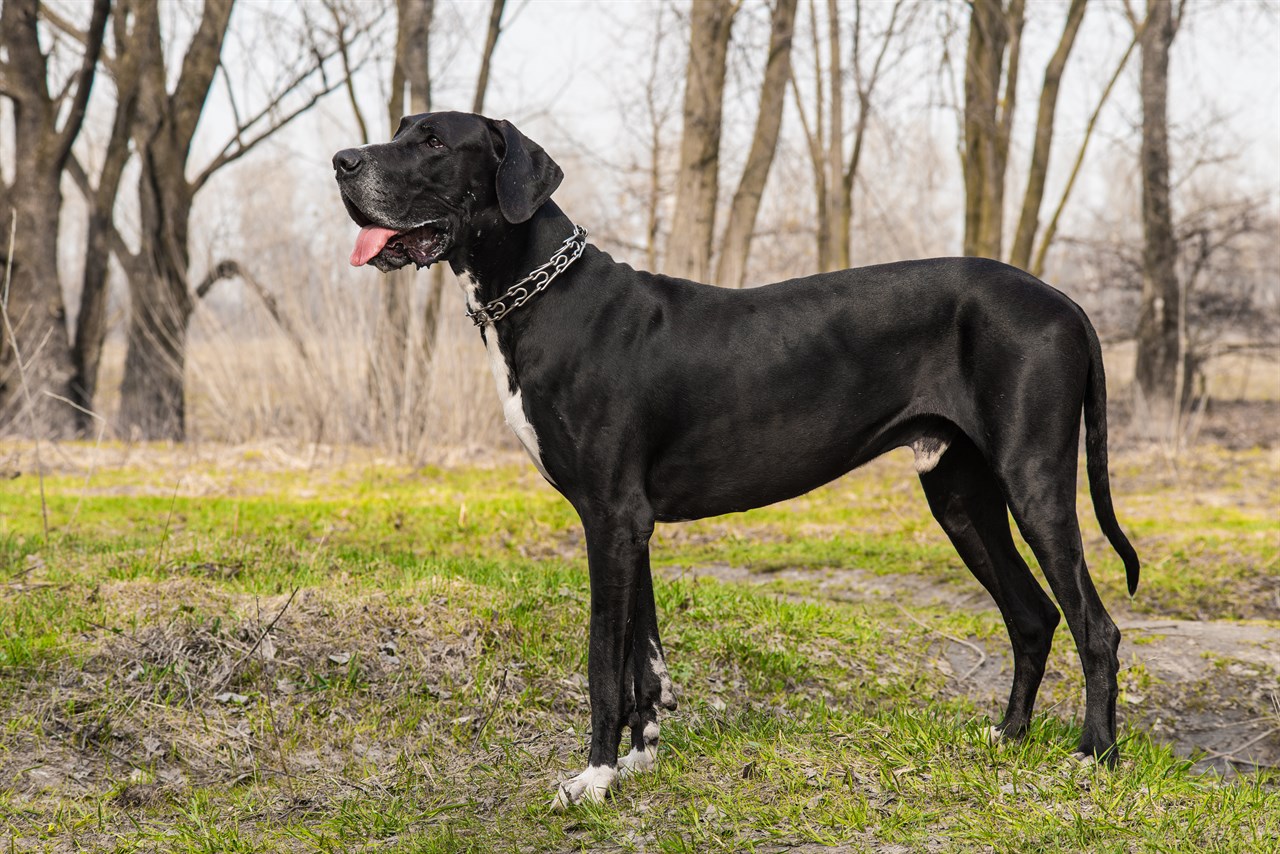Great Dane: Majestic Giants of the Canine World

The Great Dane, often referred to as the "Apollo of Dogs," is a remarkable breed that stands out not only for its immense size but also for its gentle and affectionate nature. These majestic giants are known for their impressive stature and elegant appearance. In this comprehensive piece, we will delve into the history, breed group, size, coat, colour, and appearance of the Great Dane. We will also address some common questions related to this magnificent breed.
Breed History
The history of the Great Dane is a captivating journey through time. Despite their imposing presence, these dogs have remarkably gentle origins. Great Danes are believed to have descended from ancient Molossian hounds, which were used for hunting large game in ancient Greece. Over time, they found their way to Germany, where they were bred with local dogs to create a larger, more powerful breed.
In the 16th century, these dogs were highly regarded by German nobility and were known as "Kammerhunde" or chamber dogs, as they often lived in the castles and chambers of aristocrats. They were primarily used for hunting boars, a task that required a brave and robust breed like the Great Dane.
Also Known As
The Great Dane is also known as the the Apollo of Dogs or German Mastiff by lovers of the breed.
Breed Group
The Great Dane belongs to the Working Group, as classified by major kennel clubs like the American Kennel Club (AKC). This group includes breeds that were originally bred for various types of work, such as guarding, pulling sleds, or performing water rescues. Despite their regal appearance, Great Danes still possess the working dog's spirit and determination.
Breed Size
Great Danes are undoubtedly among the largest dog breeds in the world. Adult male Great Danes typically stand between 76 and 86 centimetres tall at the shoulder and can weigh anywhere from 64 to 79 kilogrammes or more. Female Great Danes are slightly smaller, with a height range of 71 to 81 centimetres and a weight range of 50 to 64 kilogrammes.
Breed Coat, Colour, and Appearance
Great Danes have a short, sleek coat that lies flat against their muscular bodies. The coat is easy to care for and comes in a variety of colours, including:
- Fawn: A golden-yellow coat with a black mask.
- Brindle: A mix of fawn and black stripes.
- Blue: A solid steel blue colour.
- Black: A solid black coat with a white chest.
- Harlequin: White with irregular black patches.
Great Danes have a majestic appearance characterised by a long, elegant neck, a deep chest, and a well-defined, chiseled head. Their eyes are expressive and convey a sense of intelligence and kindness. Overall, they exude an aura of strength and nobility.
What two dog breeds make a Great Dane?
The Great Dane is believed to have been created by crossing the English Mastiff and the Irish Wolfhound.
What Great Danes can you not breed together?
Breeding two harlequin Great Danes together is generally discouraged, as it can result in health issues in their offspring.
What is the largest Dane breed?
The Great Dane is the largest Dane breed, known for its towering stature and impressive size.
How big will a Great Dane get?
On average, male Great Danes stand 76 and 86 centimetres tall and weigh 64 to 79 kilogrammes, while females stand 71 to 81 centimetres tall and weigh 50 to 64 kilogrammes.
What is a Great Dane a mix of?
Great Danes are a mix of English Mastiff and Irish Wolfhound, with some contributions from other breeds over time.
Is a Great Dane bigger than a lion?
No, lions are significantly larger than Great Danes. Adult male lions typically weigh between 150 to 227 kilogrammes and stand around 137 to 198 centimetres tall at the shoulder.
Can a Great Dane beat a tiger?
Great Danes are not equipped to take on a tiger, as tigers are much larger, stronger, and more agile predators. It is not advisable to put any dog in such a dangerous situation.
In conclusion, the Great Dane is a breed that combines grace and power in an unparallelled way. With their rich history, massive size, striking appearance, and gentle disposition, they have earned their place as one of the most beloved and admired dog breeds in the world. While they may not be larger than lions or capable of defeating tigers, their true strength lies in their loving and loyal nature, making them cherished companions in many households worldwide.
Continue reading our Great Dane in-depth articles
- Great Dane Temperament and Behaviour
- Great Dane Training and Socialisation
- Great Dane Toilet Training
- Great Dane Barking Habits
- Great Dane Grooming Requirements
- Great Dane Shedding Behaviour
- Great Dane Sleeping Behaviour
- Great Dane Diet and Feeding Requirements
- Great Dane Average Lifespan
- Great Dane Exercise Requirements
- Great Dane Common Health Issues
- Great Dane Suitability Guide
- Great Dane Advantages
- Great Dane Disadvantages
- Great Dane Cost to Buy and Own
- Great Dane Clubs and Links
- Selling Great Dane Puppy Litters and Dogs
- Buying Great Dane Puppies and Dogs
- Great Dane Alternatives
Great Dane puppies for sale
- Find Great Dane puppies for sale in ACT
- Find Great Dane puppies for sale in NSW
- Find Great Dane puppies for sale in NT
- Find Great Dane puppies for sale in QLD
- Find Great Dane puppies for sale in SA
- Find Great Dane puppies for sale in TAS
- Find Great Dane puppies for sale in VIC
- Find Great Dane puppies for sale in WA